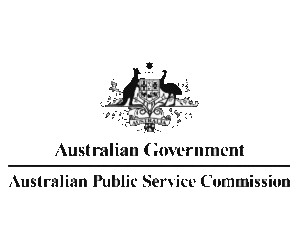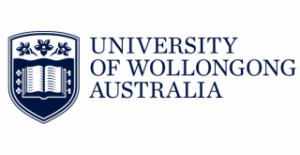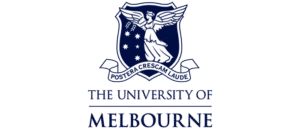Home » About APPI » Governance
Governance
APPI operates under a robust governance framework that includes a dedicated, independent Board of Directors and an underpinning Constitution. In addition, there are formal agreements in place with each of our government and university partners. The Constitution delineates the roles and responsibilities of the Board of Directors, ensuring transparency, accountability, and adherence to the highest ethical standards.
Board
APPI is governed by an independent Board of directors, which is responsible for providing oversight and strategic guidance to ensure the effective operation and fulfilment of APPI's ’s mission. The Board is composed of distinguished individuals from various fields, including government, universities, the not-for-profit sector and industry who bring their expertise and experience to steer APPI’s activities.
Peter Varghese AO
Mr Varghese has served as Chancellor of the University of Queensland since 2016.
His illustrious 40-year career includes roles as Secretary of the Department of Foreign Affairs and Trade (2012–2016), High Commissioner to India (2009–2012), High Commissioner to Malaysia (2000–2002), Director-General of the Office of National Assessments (2004–2009), and Senior Advisor (International) to the Prime Minister (2003–2004).
Jillian Kilby
Jillian Kilby is an Australian Sir John Monash Scholar holding a degree in Civil Engineering (Sydney University), and an MBA and Public Policy Master’s (Stanford University). She is a Fellow of the Institute of Engineers Australia and Graduate of the ACID.
Jillian has experience in engineering, project management, consulting, facilitation, and economic development in Australia and the USA. She holds a number of roles, including Interim Chair of the Australian Public Policy Institute, Member of the NSW Skills Board, Member of the USYD Faculty of Engineering Industry Advisory Board, Managing Director of The Stable Group and Founder of The Exchange. Jillian was the 2018 NSW/ACT Rural Woman of The Year.
Peter Duncan AM
Peter Duncan AM has over 40 years’ experience in government and infrastructure, working at local, state and national levels. He has held various senior public sector roles including in local government, Premier and Cabinet Department, Transport for NSW, Primary Industries and for the Olympic Coordination Authority.
Peter has worked as Chief Executive in areas such as transport, infrastructure, forestry, parks, maritime, technology and services. He is the principal of an Advisory business and holds non-executive director and board chair roles. He is currently Chair of the Australian Rail Track Corporation, WaterNSW, and NSW Local Government Boundaries Commission, and a non-executive director of the Westpac Rescue Helicopter Service.
Peter is a National Fellow of the Institute of Public Administration Australia and a Companion of The Institution of Engineers Australia.
Amy Persson
Amy Persson is Pro Vice-Chancellor (Social Justice and Inclusion) at the University of Technology Sydney (UTS). Amy is a public policy specialist who has worked extensively across the private, public and not-for-profit sectors to deliver major social, economic and environmental initiatives with social impact and social justice at their heart. For the last three years Amy has overseen UTS’s government and external engagement from the Vice Chancellor’s office, and before this spent eight years in various Senior Executive roles in the NSW Department of Premier and Cabinet, overseeing portfolios such as child protection, Aboriginal Affairs, social and affordable housing, city shaping and public transport, intergovernmental negotiations and media and communications for the Premier.
During this time, Amy ran the NSW Government’s Behavioural Insights Unit and Office of Social Impact, trialling innovative new ways to implement public policy initiatives aimed at improving the lives of the most vulnerable people in NSW. She also ran the Cities Branch, which was critical to delivering a more joined-up approach to transport and strategic planning in NSW. Earlier on in her career, Amy was a senior political adviser to several State Government Ministers and spent time in the UK driving climate change and environment initiatives with the major environmental groups headquartered there. Amy studied Arts/Law and is passionate about driving greater equity and diversity in the higher education sector.
Joseph Rizk AM
Joseph Rizk AM is the CEO & Managing Director of Arab Bank Australia for the past 12 years. Prior to his appointment as Managing Director, Joseph held the position of Chief Banking Officer for over five years, overseeing the retail, commercial and trade banking operations as well as its branch network, and being responsible for all revenue generating arms of the Bank.
Joseph has 48 years of corporate, commercial and international banking and finance experience along with extensive experience across the banking spectrum with the ability to generate positive results in the face of tough market conditions and in an increasingly competitive business environment. Prior to joining Arab Bank Australia, Joseph worked predominantly for the National Australia Bank in a senior executive capacity, leading and managing a series of large business units in Sydney and NSW and headed up the NAB’s NSW & ACT Property Finance Groups.
Joseph is a member of The Australian Institute of Company Directors (MAICD) and a fellow of The Australian Institute of Management (AIM).
Professor the Hon Verity Firth AM
Professor the Hon Verity Firth AM is the inaugural Vice-President Societal Impact, Equity and Engagement at the University of New South Wales (UNSW). Prof. Firth has over twenty years’ experience at the very highest levels of government and education sectors in Australia.
Prior to her role at UNSW, Professor Firth was the Pro Vice-Chancellor Social Justice and Inclusion at the University of Technology Sydney (2015-2022). Prof. Firth was NSW Minister for Education and Training from 2008-2011, where she focused on equity in education, and how to best address educational disadvantage in low socio-economic communities, including rural and remote Indigenous communities. As NSW Minister for Women (2007-2009), Ms Firth implemented sector wide strategies to improve women’s recruitment, development and employment in the NSW public sector, and delivered the NSW Government’s first Domestic Violence Strategy. As Chief Executive of the Public Education Foundation (2011-2014), Prof. Firth led the Foundation’s transformation from a fledgling organisation into a major provider of scholarships and support for teachers and students in public education. Professor Firth was the Member for the state seat of Balmain from 2007-2011. Before her parliamentary career, Ms Firth worked as a lawyer and was Deputy Lord Mayor of the City of Sydney.
Kirsten Andrews
Kirsten has more than 20 years of experience in reputation management, communications and engagement. She is respected across both public and private sectors, with established relationships across media, government, education and business.
As the Vice-President External Engagement at the University of Sydney she has executive responsibility for student recruitment, marketing, communications and media at the University as well as industry, government and cultural engagement.
Kirsten joined the University of Sydney in 2013 to transform its media and government relations functions. She then spent three years as Chief of Staff to the Vice-Chancellor, when she also chaired the University’s Crisis Management Committee during the pandemic. Prior to joining the University, Kirsten held senior positions in government and the not-for-profit sector, including at the National Heart Foundation, as Chief of Staff to a federal minister, and Deputy Director of Communications to the Premier of New South Wales.
She is currently a Director of the United States Studies Centre, Destination New South Wales, Teach for Australia and A14 Holdings, an associated entity of the University of Sydney overseeing its operations in China and Vietnam.
Kirsten holds a Bachelor of Arts (Hons) in Communication Studies and a Master of Public Policy. She is also a member of the Australian Institute of Company Directors and Chief Executive Women.
Governance Framework
Our governance structures and agreements ensure clear processes, integrity, accountability, and the pursuit of excellence in research, analysis and policy engagement.
Partnerships
APPI has developed a unique partnership with the NSW Government and a group of Australian universities:
- APPI has a Memorandum of Understanding with the NSW Government, which sets out the nature of this unique collaborative partnership. It outlines shared goals, cooperation, and partnership principles.
- APPI has a Memorandum of Understanding with the Australian Public Service Commission on behalf of the Commonwealth Government setting out our shared objectives and missions.
- Complementing our existing governance structures, APPI formed a Policy Advisory Committee that serves as a platform for dialogue and exchange between APPI and key government stakeholders.
- APPI has a Partnership Agreement in place with each of its university partners. These partnerships enable APPI to leverage the expertise and resources of its university partners, fostering a vibrant environment for collaboration and knowledge exchange at various levels.
- The University Partners Advisory Panel is a sub-committee of the Board, designed to maximise the contribution of university partners to the work and shared mission of APPI.
- Each of our universities provide APPI with a ‘key contact’ with dedicated time to supporting engagement with the Institute. Our University Key Contacts play a crucial role in helping APPI to identify and access research expertise, professional advice and facilities in support of our mission.









Advisory Groups
The Policy Advisory Group is formed within government to help inform APPI’s agenda. It is comprised of ministerial advisors and public servants, providing crucial advice on government priorities and areas for collaboration.
The Research Advisory Group provides expert advice to APPI regarding the governance of the Institute’s research activities with a focus on public policy impact. It also provides guidance on the shortlist of applications for the APPI Policy Challenge Grant program.
This is a true success story for NSW, showcasing how collaboration between government and universities can positively change everyday lives.
Jillian Kilby, Interim Chair of the Board
Finance, Audit and Risk
- Reviewing financial reporting to the Board, in line with financial reporting requirements.
- Reviewing internal governance and external audit processes, including its financial delegations and insurance policies.
- Reviewing the Institute’s register of risks.
- Ensuring any and all legal and regulatory requirements are met (including those related to charitable status or research activity).
The Committee is chaired by a Board director, and includes:
- One additional member-appointed Director/ equivalent representative, and
- An external, independent appointee with considerable finance, audit and/or risk expertise.